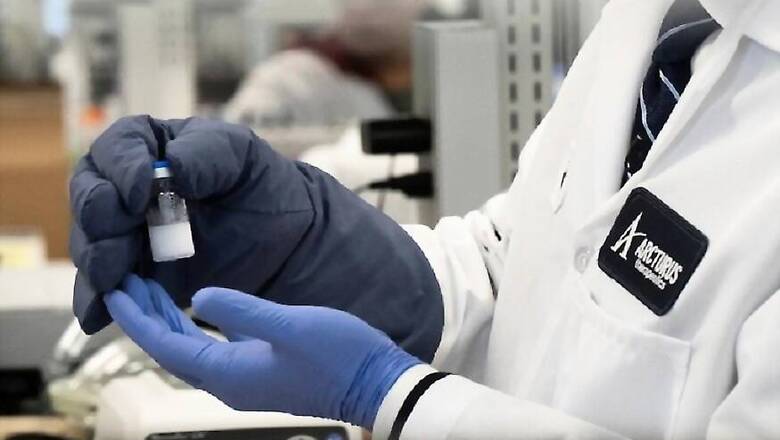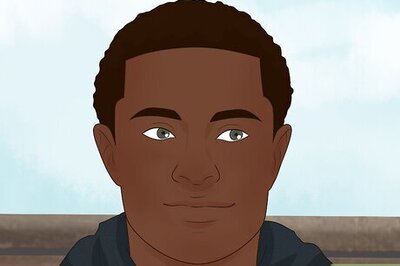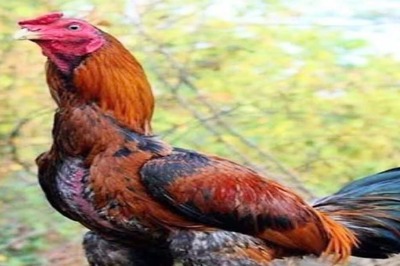
views
As the world battles the Covid-19 pandemic, scientists are racing against time to find a vaccine, drug, or therapy to put a halt to the novel coronavirus's rampage. Researchers are studying how the virus's proteins interact with various parts of the human cell and are creating drugs that can alter this interaction. The cure for Covid-19 will, thus, require figuring out a mechanism that stops the proteins from taking over the humans’ cellular machinery.
Here's everything you need to know about the virus, its working and the drugs that are being explored as possible treatments.
Q.Can you protect your body against a coronavirus attack?
The novel coronavirus or SARS-CoV-2 is covered in popsicle-shaped 'spike' proteins which make it possible for it to fix itself onto a human cell and soldier its way inside. As coronaviruses bear close resemblance in their spike proteins, scientists are now refurbishing plans from SARS and MERS to combat SARS-CoV-2. Similar to the germ that caused the 2003 SARS epidemic, SARS-CoV-2 or the novel coronavirus, sticks to a protein on human cells called ACE2. ACE 2 is pervasive in the lungs and small intestine.
The intruder’s advances can be curbed by preventing it from binding to ACE2. This is what is done by our immune system’s response to the virus — it releases antibodies that alter the virus’s spikes, stopping it from fixing itself onto ACE 2. But there are other ways through which the virus’s attack can be prevented.
Vaccine: For an enduring solution, a vaccine is key. The vaccine contains a weakened version of the pathogen that allows your immune system to use for training. But on the flip side, it can also cause the infection itself. Now, researchers are trying to develop vaccines that posses not the entire virus, but just its surface spikes. When administered in combination with immune-boosting molecules called adjuvants, they'll evoke a sound antibody response, a Wired report said.
There are currently more than 70 vaccines for the new coronavirus currently being developed globally, including one at Oxford University, where human trials of the vaccine started on Thursday. According to some scientists, we could see the first developments in vaccine around October. However, this is a very ambitious timeline, and the development could take a minimum 18 months, other experts have said.
Antibodies: Another potential solution is to inject antibody-rich blood plasma from people who have survived the viral infection and administer it to recently infected or at-risk individuals. Unlike a vaccine, plasma won't train the body to guard against the virus forever, but it could be an effective technique to equip frontline workers who have a greater risk of exposure to the virus. The plasma therapy has been tried on patients in Delhi, and will also be used in Mumbai.
Stop the Virus from Sticking to ACE2: On paper, these compounds work on both SARS and Covid-19 as it prevents the virus from binding to the cells. However, ACE2 has several functions in the body — it maintains blood pressure and regulates kidney function. Toying with it could prove to be harmful.
Q.Can the virus be killed?
All viruses are enveloped in a dense protein layer to safeguard their genetic material. The novel coronavirus, too, has a surface layer of fatty molecules. While this may sound intimidating, it’s a weakness that humans can exploit. This makes the virus vulnerable to soaps and alcohol-based sanitisers. Simply put, if you wash your hands or dab on some sanitizer, you will strip the virus of its fatty layer, without which it cannot survive.
But what happens when the virus has entered the human cell already? A virus seeks to co-opt the apparatus of the host cell and compel it to make viral copies. By altering how that system works, it's plausible to curb the virus's efforts. Drugs that were created to combat other diseases could have “off-label” applications for Covid-19.
Q.But do we know which drugs work and which don’t?
While the hunt for a vaccine is still on, there have been some key developments in potential treatments. Choloroquine phosphate, which has been employed for the treatment of Malaria, alters the pH levels of human cells and makes it hostile for some viruses. Researchers are studying if it can work on SARS-CoV-2. There’s just one hurdle — an overdose can gravely endanger a patient’s life. Then there is protease inhibitors, another set of drugs which have been used to treat ailments like HIV and hepatitis C. They essentially derange the replicating process by acting as “molecular scissors,”. Another class of drugs works on an enzyme called polymerase, which combines the replicas of the virus’s genetic makeup, RNA, inside the host cell. Two potential antiviral drugs have also emerged — remdesivir, which was first created to treat Ebola, and favipiravir, first used to treat influenza.
Q.What coronavirus treatment is being worked on in India?
In a key breakthrough, the end-to-end synthesis of Favipiravir has been concluded, the Council of Scientific and Industrial Research (CSIR), said on Thursday. Dr Shekhar C Mande, Director General of CSIR, told News18 that the synthesis process has been handed over to a private pharmaceutical company and the Drug Controller General of India will now take a call on introducing the drug for testing as Covid-19 treatment. Favipiravir has shown good results against influenza viruses and is being tested in other countries as a possible treatment against the novel coronavirus, including in China, Japan, Russia and the Middle East.
A drug called Sepsivac, that has been shown to reduce mortality by 50 per cent in Sepsis patients, will also be tested on Covid-19 patients after it received approval from DCGI. The CSIR said the mechanism for prevention of Sepsis and this infection is similar, and therefore, they got the approval for it two days ago to conduct limited trials in AIIMS Bhopal, AIIMS Delhi and PGIMER, Chandigarh.
Q.What's herd immunity and how does it work?
When a majority of the people in a population become immune to an infectious disease, this gives indirect protection or herd immunity. Under this policy, the virus is allowed to spread. The rationale behind doing so is that it will not affect most people seriously. Those who do end up contracting the virus will recover from it and then get on with their lives. Sweden is one of the countries to have opted for this contentious strategy. Swede's policy permitted some exposure to the virus in order to develop immunity among the general population while safeguarding high-risk groups like the elderly.



















Comments
0 comment